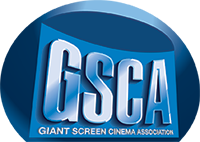
The Carnegie Science Center in Pittsburgh, Pennsylvania, made Dream Big the center piece of their museum programming in 2017 to motivate a new generation of engineers by demonstrating engineering’s impressive impact on our world and lives. A pillar of Carnegie Science Center’s mission is to inspire children and adults, particularly under-represented groups, to explore careers in STEM. Additionally, they aim to provide teachers with profession learning opportunities to share and promote hands on instructional experiences in their classrooms. “Our Chevron Center for STEM Education and Career Development is passionate about getting kids excited about engineering and Dream Big is a great way to do that,” said Jason Brown, Carnegie Science Center’s Senior Director of Science and Education.
Program Elements
 In addition to traditional outreach to teachers and educational programs offered at the museum, Carnegie Science Center integrated Dream Big into five main programs throughout the year.
In addition to traditional outreach to teachers and educational programs offered at the museum, Carnegie Science Center integrated Dream Big into five main programs throughout the year.
Kicking off their programming was the Girls Night Out and Design Challenge, which targeted girls in grades 7 through 12. Seventy girls got an opportunity to screen the film and participate in three design challenges, created by MacGillivray Freeman Films, that mirrored the structures and activities in the film. The goal of the program was to engage girls with STEM activities, and to connect them with professional engineers to expose them to careers in STEM. Additionally, the program was intended to demonstrate to teachers how to implement the engineering design process in their classrooms to in turn empower students to design, test, and iterate their own solutions.
Engineering The Future was held the following week during National Engineers Week in February. Pittsburgh is a city with engineering at its core, with iconic bridges modern and building design. The event celebrated the region’s achievements in the field and connected with the local community. The three-day festival featured presentations, hands-on activities and science demonstrations from the Dream Big activity set.
Throughout the summer, the museum held the Engineering a Better Future summer camp for kids ages 12-14. Campers learned about some of the greatest engineering challenges of the 21st century and designed potential solutions. Tying the film into the camp experience brought the on-screen marvels to life.
 For three weeks, the museum ran Dream Big Summer Activities that introduced the public to the engineering design process. Each week a new challenge from the Dream Big Educational Activity set, including the Slender Tower Challenge, Zip Line Challenge and Straw Bridge Challenge, was on display for families to participate in.
For three weeks, the museum ran Dream Big Summer Activities that introduced the public to the engineering design process. Each week a new challenge from the Dream Big Educational Activity set, including the Slender Tower Challenge, Zip Line Challenge and Straw Bridge Challenge, was on display for families to participate in.
Finally, to inspire students to take the next step toward a career in a STEM field, the museum held a Career Café for Middle and High School students. The event was an informal “speed dating” set up for students to speak with engineers and learn about what their jobs entail and the paths they took to their profession. Nine different organizations were represented from some of the most prestigious local and international STEM focused groups.
Measurement of Outcome
Programs were evaluated both formally and anecdotally. The Engineer the Future event was reviewed by the Collaborative For Evaluation and Assessment Capacity by the University of Pittsburgh. They found that during the events Over 75 percent of students agreed that the engineering exhibits were fun and exciting and nearly 75 percent of all respondents agreed that Dream Big was a valuable addition to the day, with 94 visitors sharing that the film was in fact their favorite activity of the day.
For all other events, the museum gathered feedback directly from visitors and found that overall the experiences were positive and inspiring.
Moreover, Carnegie Science Center took great pride in both creating this museum-wide campaign around Dream Big as well as submitting their entire educational program for awards consideration and to the GSCA Educational Library. “We are so honored to be recognized by our peers for the Best Educational Program Award. Our team created amazing programming throughout our museum and community, and we are proud to share it with our excellent network of museums in the GSCA. Though submitting award applications is tough work, it is well worth it!” proclaimed Connie George, the Senior Director of Marketing and Community Relations at the Carnegie Science Center.

Steve Kovac, Director of Operations and Visitor Services, and Chad Hunter, Director of the Rangos Giant Cinema, accepting the Best Educational Program Award at the 2017 GSCA Conference.
 Submitted by Shauna Badheka. Shauna is the Distribution Coordinator with MacGillivray Freeman Films. For the past 3.5 years she has helped the MFF team bring their films to theatres and supported museum in their marketing efforts, with a little bit of everything else in between.
Submitted by Shauna Badheka. Shauna is the Distribution Coordinator with MacGillivray Freeman Films. For the past 3.5 years she has helped the MFF team bring their films to theatres and supported museum in their marketing efforts, with a little bit of everything else in between.
